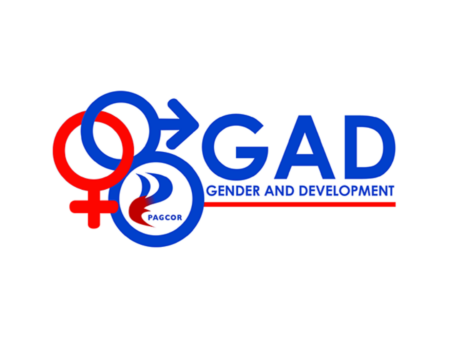The President of the Philippines, Ferdinand Marcos Jr., has introduced a comprehensive ban on all Philippines Offshore Gaming Operators (POGOs), effective immediately. This decisive action, announced during Marcos’ State of the Nation Address (SONA), addresses the rising concerns and mounting pressure from various groups advocating for the cessation of POGO operations. The ban is a response to the escalating involvement of POGOs in illegal activities and their connection to foreign crime syndicates.

Ferdinand Marcos Jr. Introduces Ban on All Philippines Offshore Gaming Operators (POGOs) by Year-End
Rationale Behind the Ban
Combatting Illegal Activities
The move to ban POGOs stems from their entanglement in numerous criminal activities. These operations, initially established under the guise of legitimate gaming entities, have expanded into illicit areas such as financial scams, money laundering, prostitution, human trafficking, kidnapping, brutal torture, and even murder. The proliferation of these activities has posed a significant threat to national security and public safety.
Senator Joel Villanueva’s Advocacy
In late June, Philippines Senator Joel Villanueva advocated for a comprehensive ban on all forms of online gambling, including POGOs. Villanueva highlighted the urgent need to address the pervasive issues linked to online gambling operations, which have become breeding grounds for various forms of criminal behavior. His call to action emphasized the importance of safeguarding the nation from the adverse impacts of these illegal activities.
PAGCOR’s Stance
The Philippine Amusement and Gaming Corporation (PAGCOR) has echoed the sentiment for stricter regulation. In July, PAGCOR reaffirmed its position by stating that POGO hubs would no longer be permitted to operate. This alignment with the government’s stance underscores the collective effort to eradicate the negative influence of POGOs on the country’s socio-economic landscape.
Impact of the Ban
Economic Implications
The immediate cessation of POGO operations will undoubtedly have significant economic repercussions. The POGO industry has contributed substantially to the Philippine economy through licensing fees, taxes, and employment opportunities. However, the long-term benefits of eradicating the associated illegal activities are anticipated to outweigh the short-term economic losses.
Social and Security Benefits
The ban aims to restore public order and enhance national security by eliminating the criminal networks that have thrived under the cover of POGO operations. By dismantling these networks, the government seeks to protect its citizens from exploitation and reduce the incidence of crime linked to offshore gaming activities.
Government’s Commitment to Enforcement
Marcos’ Directive
In his SONA, President Marcos underscored the urgency of addressing the POGO issue. He explicitly instructed PAGCOR to wind down and cease all POGO operations by the end of the year. This directive signifies the government’s unwavering commitment to enforcing the ban and ensuring compliance from all stakeholders involved in the POGO industry.
Law Enforcement Efforts
The successful implementation of the ban will require robust law enforcement measures. Authorities are expected to intensify their efforts to monitor and dismantle any remaining illegal POGO operations. This includes collaboration with international agencies to track and apprehend foreign crime syndicates involved in the illicit activities associated with POGOs.
Public and International Reactions
Domestic Support
The announcement has garnered widespread support from the public and various advocacy groups. Many citizens have expressed relief and optimism, hoping that the ban will lead to a safer and more secure environment. The public’s backing is crucial for the government’s ongoing efforts to eradicate illegal gambling operations.
Global Perspective
Internationally, the ban is viewed as a significant step towards combating transnational crime. The Philippines’ proactive stance serves as a model for other countries grappling with similar issues. By taking decisive action, the Philippines demonstrates its commitment to upholding the rule of law and protecting its citizens from the detrimental effects of illegal gambling.
Conclusion: The Bold Decision
President Ferdinand Marcos Jr.’s bold decision to ban all Philippines Offshore Gaming Operators marks a pivotal moment in the nation’s fight against illegal activities and crime syndicates. While the economic impact of the ban is considerable, the long-term benefits of improved security and public order are invaluable. The government’s unwavering commitment to enforcing this ban underscores its dedication to safeguarding the nation and its people.
FAQs About the Ban on Philippines Offshore Gaming Operators (POGOs)
1. What prompted the ban on Philippines Offshore Gaming Operators (POGOs)?
The ban was introduced due to the involvement of POGOs in numerous illegal activities, including financial scams, money laundering, prostitution, human trafficking, kidnapping, brutal torture, and even murder. These activities posed significant threats to national security and public safety.
2. When was the ban on POGOs announced?
The ban was announced by President Ferdinand Marcos Jr. during his State of the Nation Address (SONA).
3. Who advocated for the ban on online gambling in the Philippines?
Philippines Senator Joel Villanueva was a strong advocate for banning all forms of online gambling, including POGOs. He emphasized the urgent need to address the criminal activities linked to online gambling operations.
4. What role does PAGCOR play in the ban on POGOs?
The Philippine Amusement and Gaming Corporation (PAGCOR) supports the ban and has stated that POGO hubs would no longer be allowed to operate. PAGCOR is responsible for winding down and ceasing all POGO operations by the end of the year, as instructed by President Marcos.
5. What are the economic implications of the POGO ban?
The ban will have significant economic repercussions, including the loss of licensing fees, taxes, and employment opportunities. However, the long-term benefits of eliminating the associated illegal activities are expected to outweigh these short-term economic losses.
6. How will the POGO ban impact national security and public safety?
The ban aims to dismantle criminal networks linked to POGO operations, thereby enhancing national security and protecting citizens from exploitation. It is expected to reduce the incidence of crime associated with offshore gaming activities.
7. What measures will the government take to enforce the POGO ban?
The government will intensify law enforcement efforts to monitor and dismantle any remaining illegal POGO operations. This includes collaboration with international agencies to track and apprehend foreign crime syndicates involved in the illicit activities associated with POGOs.
8. How has the public reacted to the POGO ban?
The announcement has received widespread support from the public and various advocacy groups. Many citizens are optimistic that the ban will lead to a safer and more secure environment.
9. What is the international perspective on the POGO ban?
Internationally, the ban is seen as a significant step towards combating transnational crime. The Philippines’ proactive stance serves as a model for other countries facing similar issues, demonstrating a commitment to upholding the rule of law and protecting citizens from the harmful effects of illegal gambling.
10. What did President Ferdinand Marcos Jr. say about the POGO ban?
In his State of the Nation Address, President Marcos stated, “Effective today, all POGOs are banned. I hereby instruct PAGCOR to wind down and cease the operations of POGOs by the end of the year.” He emphasized that POGOs, disguising themselves as legitimate entities, had ventured into various illicit areas far removed from gaming.

















